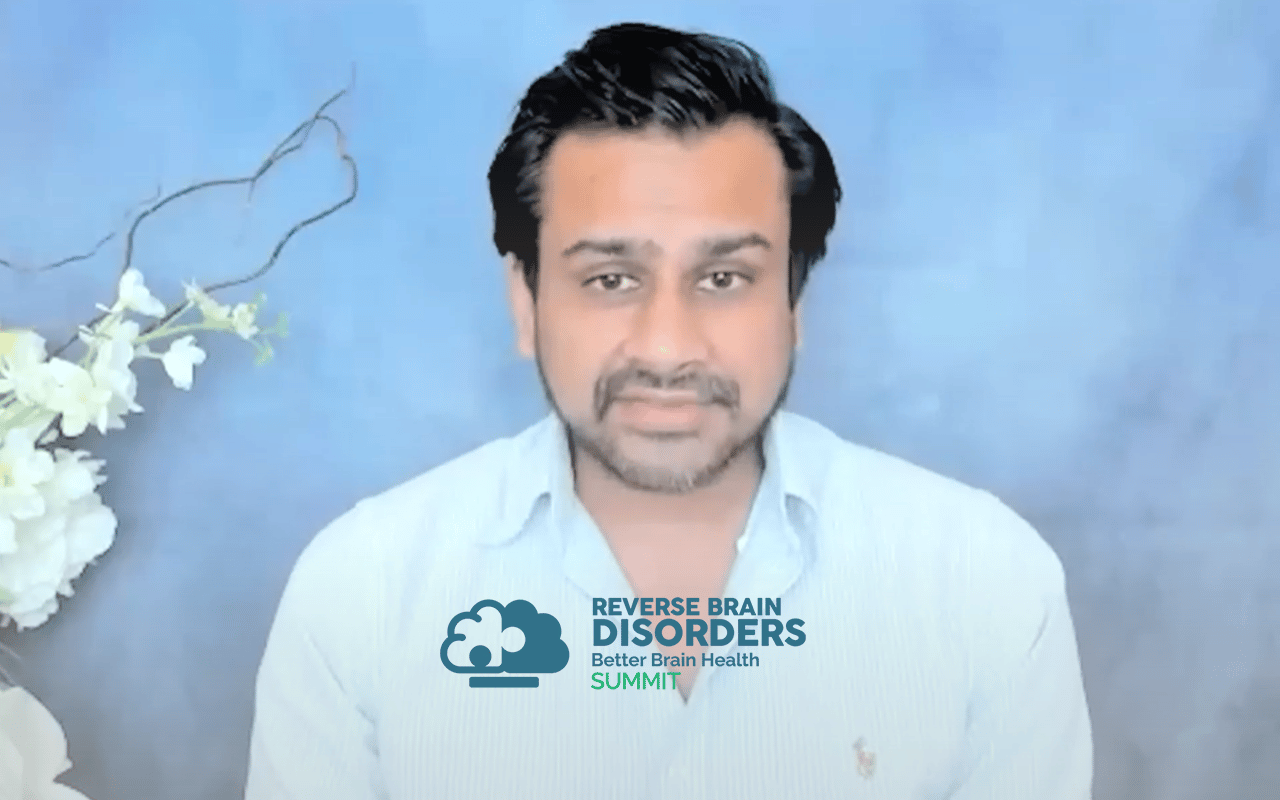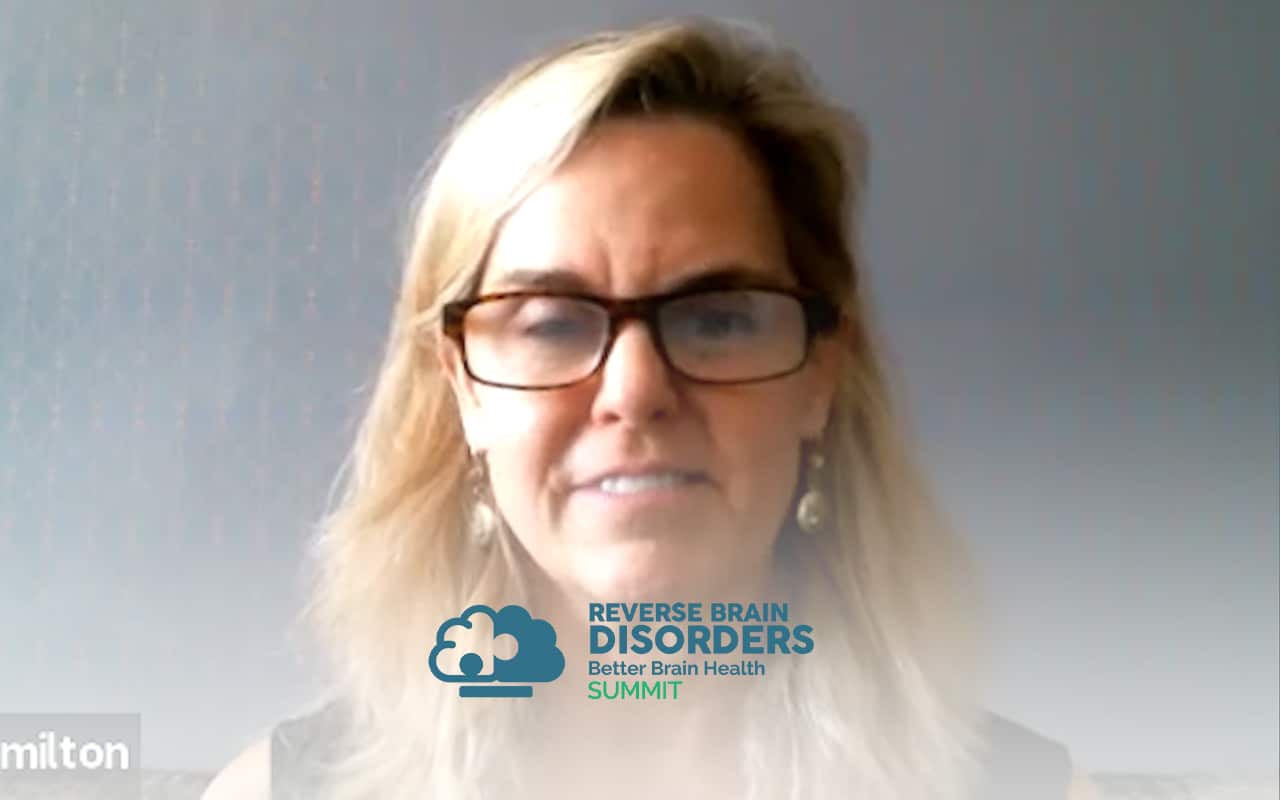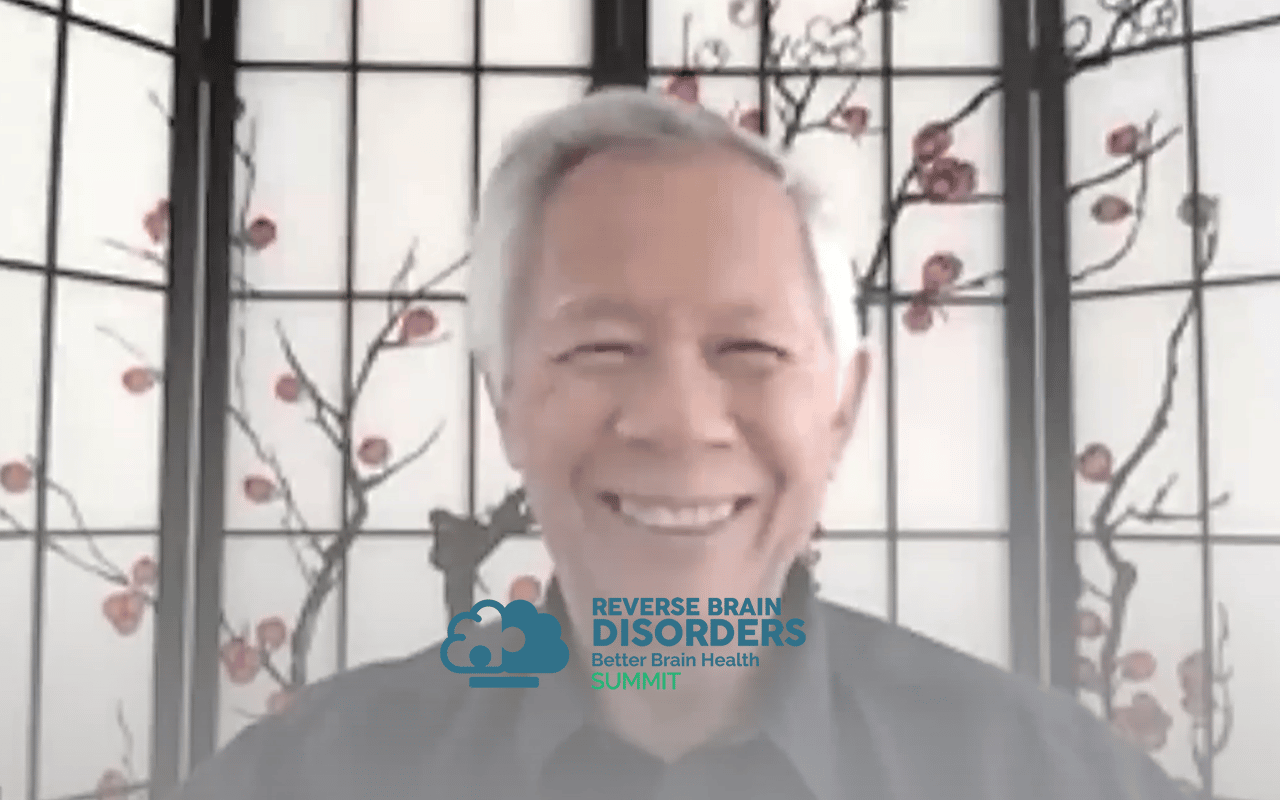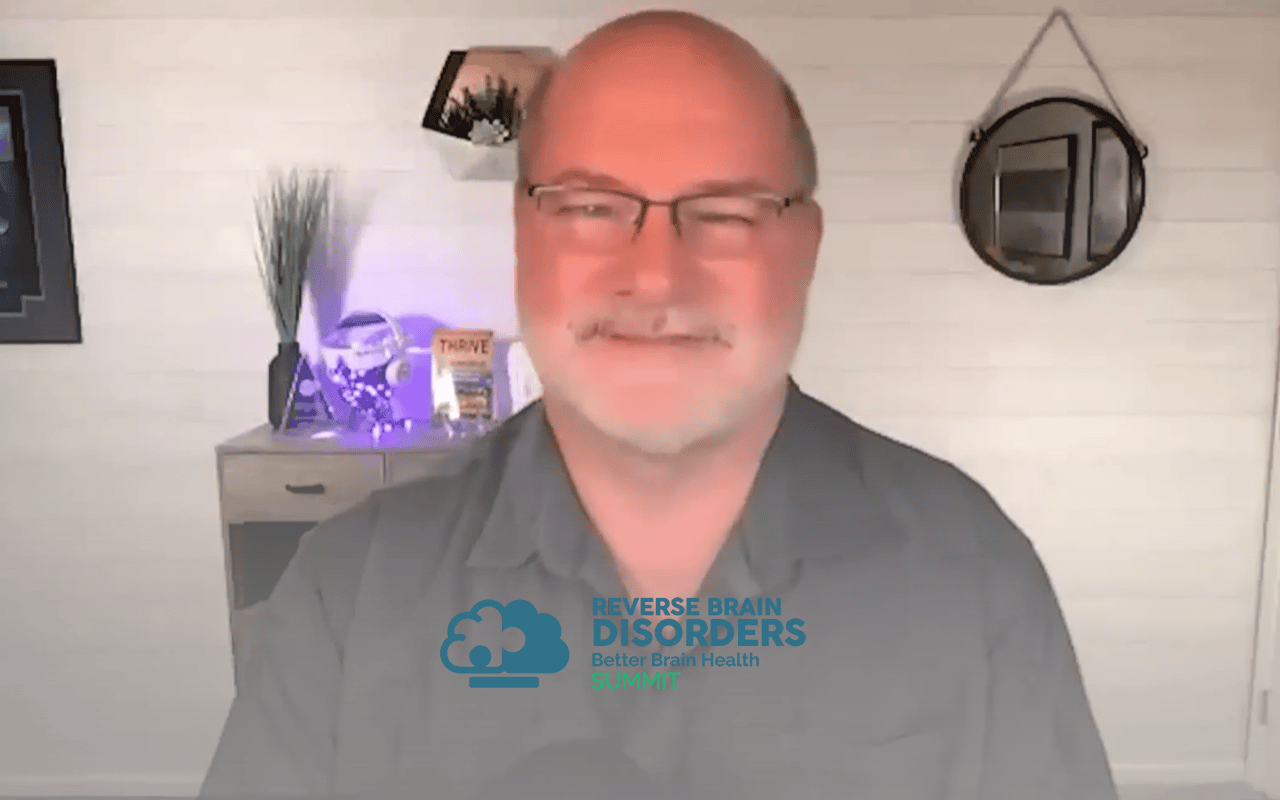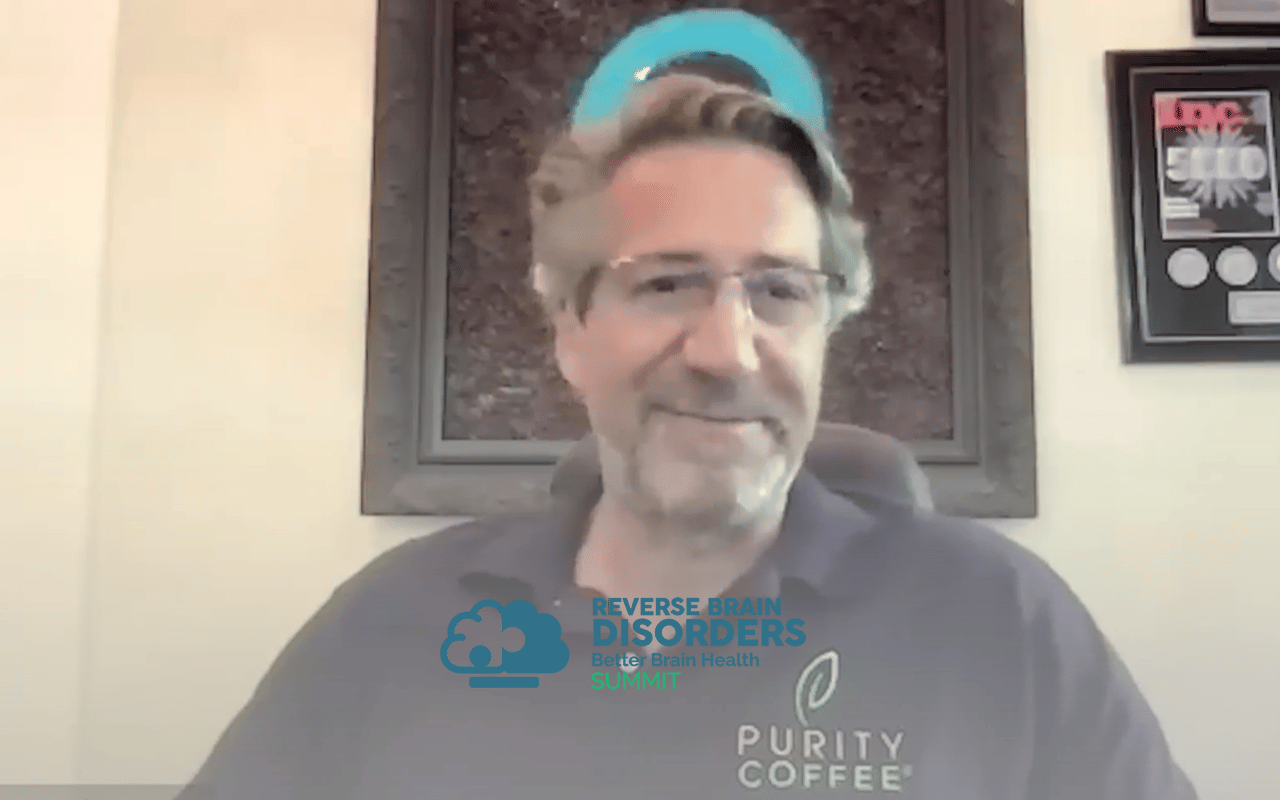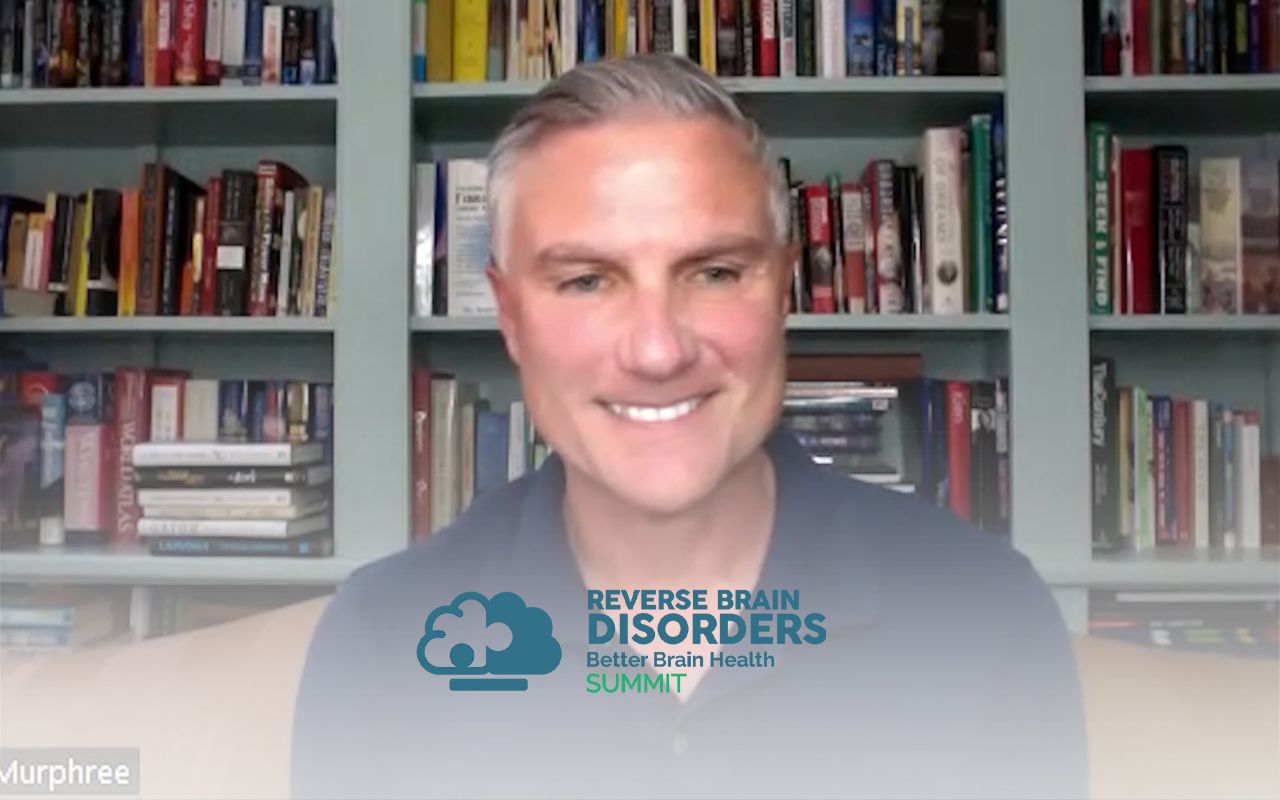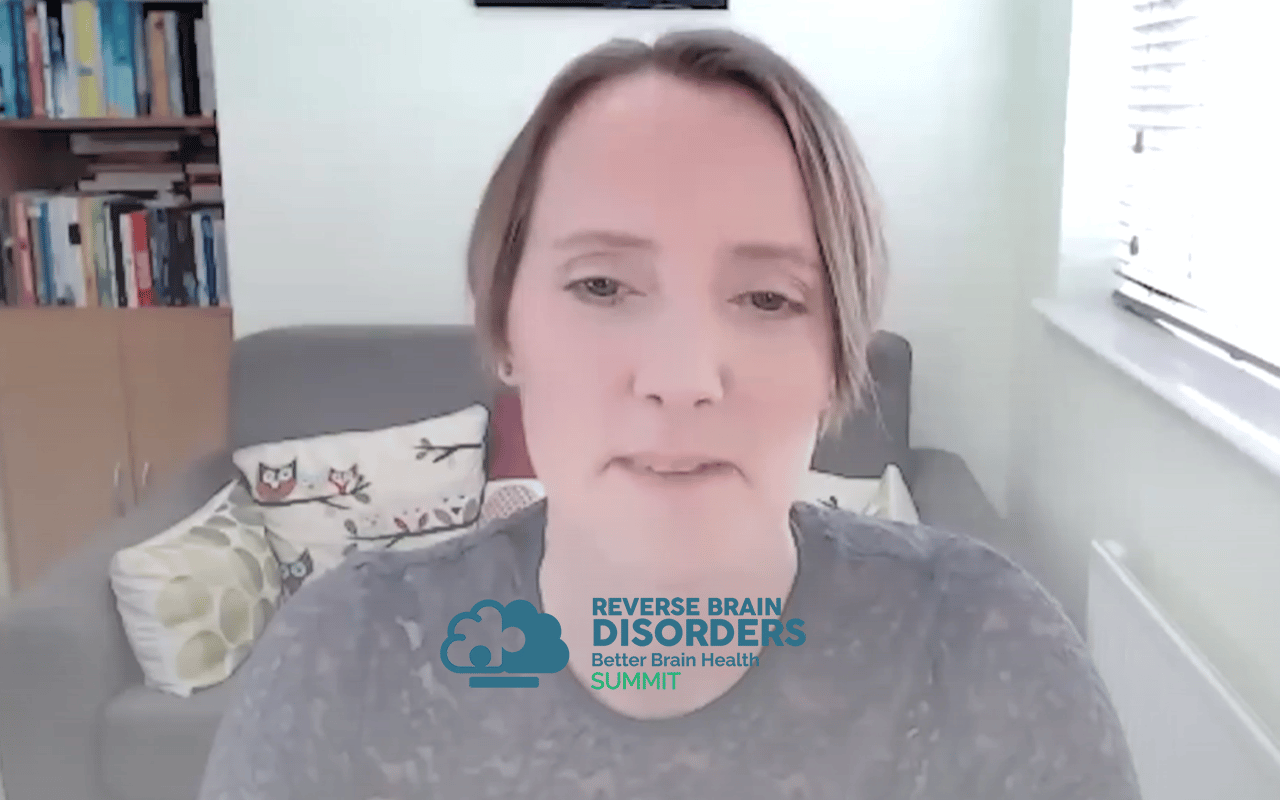Join the discussion below
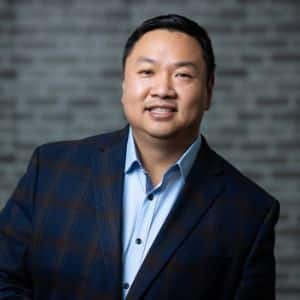
Dr. Ruan is the Founder and CEO of Texas Center for Lifestyle Medicine. He devotes his career in practicing and building systems that allow for efficient delivery of healthcare. He is a board certified internal medicine physician but also have advised with companies to improve their workflow, company culture, marketing,... Read More
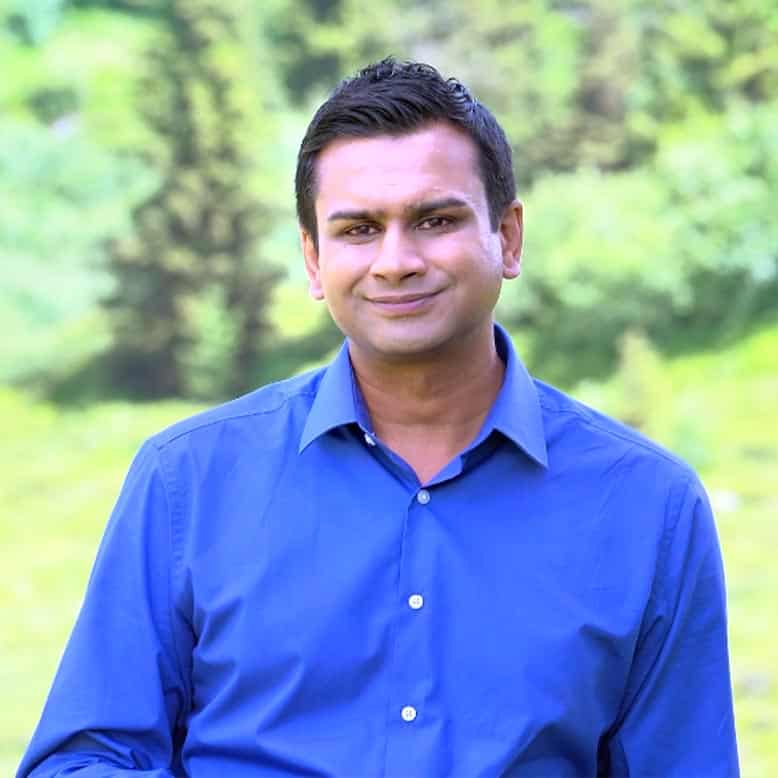
Ashok is an internationally renowned Speaker, Filmmaker & Health Practitioner who has dedicated his life to supporting people through chronic illness, and achieving their potential.Ashok suffered from ME, or Chronic Fatigue Syndrome, around 25 years ago when he was studying at Cambridge University. Through neurological research that he conducted, he... Read More
- How to treat C0V!D-19 Long Hauler’s Syndromes
- Why the mind-body connection repeatedly shows the best data in improving brain health
- How the Gupta programs improve brain health
Cheng Ruan, MD
Ashok Gupta is internationally renowned speaker, filmmaker and health practitioners who’s really dedicated his life to supporting people through chronic illnesses, achieving their maximum potential. He is the creator of the program, and it’s called The Secret of the Amygdala Training pretty fancy. And I am having him on today discuss exactly how people with chronic disorders can really find success in technology and training and in their health, the program is one of the most revolutionary tools for improving brain health and safety. Mindfulness is very holistic concept for a lot of chronic conditions and even long dollars and C0V!D as well. So I would like to welcome to the summit so excited to welcome you to this summit. Thanks for being on.
Ashok Gupta, MSc
Yeah, I’m really excited to be here. Thank you for inviting me.
Cheng Ruan, MD
Yeah, so you know, this is all about brain and brain health And one of the most crucial things that most misunderstood things about, especially in recent a couple of years, is the coronavirus and long dollars and a long, long C0V!D syndrome or whatever we’re calling it these days. And we recognize there’s a lot of symptoms that go along with it that’s similar to other disease states as well. But it’s kind of dive. And what do you think? Long haulers and C0V!D syndrome really is.
Ashok Gupta, MSc
Well, yes, it’s the Million-dollar question. And there’s so many different researchers with different theories, I think, from outside. The main reason for C0V!D is what we believe is a stuck in the system and global terms essentially. So the hypothesis that we use is that, yeah, what is the biggest reason that we’re here? Why are we here? And we can answer that from a philosophical perspective on another podcast. But right now we look at it from the scientific perspective. We’re here because this body in this brain is designed to ensure survival. So as far as the brain is concerned, survival is more important than your well-being. And so when we come across certain infection, so this could be viruses, bacterial infection and in this case, C0V!D-19. The body obviously has a plan of action, which is the virus enters the body, the body. Then it’s a whole series of different defensive mechanism through the immune system, and then once it is fought off, it resets itself and goes back to his home basis, back to balance. But what we find is that in about 10 to 20% of C0V!D patients, they go on to having lingering symptoms. And we believe this is because the brain essentially is on the side of caution and creates a chronic inflammatory response that continues. We don’t believe this continual virus debris in the body like some researchers do, although we can’t obviously the shore.
But my hypothesis is that the immune system get stuck in the nervous system, get stuck and continues to over defend against otherwise neutral stimulus. So the neutral stimulating the body are the extra pain, tiredness, the normal symptoms of post viral fatigue. But they become conditions stimuli. The brain perceives those as evidence that the virus is still present, looping back to hyper sensitive hyper-vigilant brain, triggering the immune system and nervous system, creating the symptoms and the body looping back to high percentage brain and round and round. We go into chronic illness, and these illnesses often have waves so they come and go and patients experience good days and bad days, and we believe this is because there is a feedback loop. So in physics. The only way you can get this kind of chronic waves is when the input output of the system has become linked together. And so it is with the brain and the body essentially playing a game of tennis, walking the ball harder and harder against each other, believing there’s something wrong creating this cascade of ongoing chronic illness.
Cheng Ruan, MD
You know what you say. It’s very interesting because that’s kind of like how I describe pretty much all autoimmune disorders. There’s a huge implications of the brain, and most people don’t know this, but I’m gonna give you a little bit of background data before we publish it. But, you know, we get a lot of long haulers at the Center for Lifestyle Medicine. So I’m known for brain mapping. And one of the classic classic things on the brain is that the brain operates, really are extremely high frequencies, even at baseline, basically perpetual fighter flight and you can see the like you can see like the EEG just like this, right? And that happens after the coronavirus. And that actually happens after every person with coronavirus, not just long, long dollars tend to be a lot longer, right? And your connection, you know, talking about the bond back and forth and the body makes so much sense because we can actually physically see that we see, like, the paddle being someone really hard, you know, by the brain. And it’s receiving the signal. But we said earlier is sort of this condition response. You know, the brain and the body is primed to see something there, and that just happens to be coronavirus. But, you know, but coronavirus is one of the things that the brain and the body sees. There could be more. There could be other toxins and stuff like that. And so I think there’s a lot of fear behind long dollars. What do you think? What should people do as a solution to start tackling the long haulers?
Ashok Gupta, MSc
Sure. So we’ve spent, over the last 18 months or so, treating long-haul C0V!D, and we have a plastic brain training program specifically targets along as well as some of the conditions that describes of chronic fatigue syndrome and fibromyalgia chemical sensitivities. And we believe all of these conditions have a similar physiology in the brain, which we are targeting using these brain training in your elasticity techniques and so long C0V!D and certainly within the program itself there are three key areas, so the first area is what is called, which is retraining the brain, training the brain to uncouple symptoms in the body as conditions stimuli that represents ongoing infection. So it’s decoupling that link and that connection. So that’s what we do with the core brain training and then supportive techniques.
So the second part of the program is relaxing the nervous system, so we know that the brain is more plastic when it is comma and less stimulated. So we use a variety of breathing meditation techniques, good sleep hygiene and anti-inflammatory diet. Exposure to daylight, you know, raise and sunlight all of these different things to actually calm the nervous system overall so that that specific condition response can be D tangled the train from the brain so that brings reset and go back to homeostasis. And the third are is really engaging with joy, which is often neglected aspect of medicine. So we help people understand. You can’t wait until you get better from this condition to feel good to feel happy to have positive feel-good chemicals in the brain. So using a combination of mindfulness and things like singing, laughing, dancing all of these things once again, promote feel-good chemicals in the brain, promoting your elasticity and encourage the brain to let go of the survival instincts.
Cheng Ruan, MD
Right. So the brain can actually have a huge impact on the rest of the body for the survival instincts. And that’s exactly what we see. And it’s very interesting because a lot of the people that we see with colors now it’s almost predictable who they are. They’re generally people who had relatively hard life experience, some crazy traumas in their past. There are these people who are sort of always on the sort of fighter flight, a little bit on the edge, chronic anxiety. And it’s now becoming more obvious who’s potentially going to get a long, long haulers you know, once we were able to identify the risk factors for these patients. So getting back to balance the emotional behind it is just absolutely crucial. And without that component, it’s really hard to heal, right?
Ashok Gupta, MSc
Yeah, absolutely. So the connection that we have is essentially we deal very much with the brain structure called the amygdala, and also the so our treatment and academic terms is called and retraining, and generally the as many people know, is the kind of sentinel for our emotional response is fighting responses and anger responses and traditional psychology, it was known for emotional response is. But of course, this is because medicine separates the psychology department over here, the urology department, over here. But the brain doesn’t make that differentiation. And so the idea is now associated with pain. Gateways with immune response is, and so is the part of the brain as well. And we believe that there is a link where the factory setting of the peninsula is decided by the emotional state of the mother during pregnancy, the actual birth process itself and then adverse childhood experiences that happened in the first 5 to 10 years of life. They can determine the factory settings and how reactive it is, and then that predict how likely it is. Their brain will get conditions by other defensive responses, so we know that people would adverse Childhood experiences are 3 to 4 times more likely to get these types of chronic illnesses later in life. Because the amygdala doesn’t differentiate between the types of threats, simply says what’s going to threaten survival, right? Here’s C0V!D is potentially threatens ongoing survival. Let me create a condition response. And so these are almost like post traumatic physiological responses in response to bacteria and viruses.
Cheng Ruan, MD
And that makes sense. You know, the way I can’t explain it. The way I think about it is that these are chronic post traumatic physiological responses. And there’s a lot of evidence behind it, too. So, you know, going through medical training, medical school residency. There’s a lot of, like pooh pooh on this concept of this fibromyalgia chronic syndrome real, right.? And now that I am knowing, knowing what I know now is absolutely real, and there’s a huge emotional inputs that’s required to get people to these places of physiological states. And the best way I can describe it is that you know, if you’re in the movie, you saw a scary scene, and then you gas. But in your face, you basically have a physiological response to an emotional trauma that your body can determine if it’s a psychological trauma or physical trauma and the same thing. Now I’m a child of conclusive injuries. I played a lot of sports, a lot of contact sports as a kid, a lot of a lot of concussions. And so what we see on the brain map is that those people who receive traumatic experience is the brain mapping looks identical to someone who achieving actual physical trauma. And these people are kind of wired to develop these chronic states. And I know we talk about it, but also like chronic fatigue syndrome, fibromyalgia and stuff like that. And so there’s should be an absolute appreciation of connection between the mind and the body, and that’s part of what it’s all about. And so another part of the summit I interviewed, Daniel Amen and we actually talk about how trauma can have physiological effects. But one thing that I want kind of want for you to comment on Is that okay? There’s viruses and mold, and I live in Houston, which means there’s more than 80% of the buildings that are here, right? So there’s all these things that are out there, and a lot of them are natural things that are out there responds poorly to these toxins, right? And who, like and who does not, Because I feel like there is a very specific population that is going to receive some bad effects that ping-pong effect between the brain and the body. You said, and how predictable is this? What do you think?
Ashok Gupta, MSc
Yeah. So for us, there are certain characteristics that were identified in our patients time and time again that predict this and the number one predicted to be some type of childhood trauma or adverse childhood experiences and events which predisposed the brain to more emotional sensitivity. Which then mean it’s more sensitive to physiological insults, as well. And threats and those childhood experiences often create what we call some personalities, which we are looking to offset some of those fears. So conscientiousness, achieve a mindset. So the person who pushed themselves beyond their limits regularly, always putting other people’s needs before their own. We see some of these kind of secondary personality effects that build up on those initial childhood experiences that predict for us how likely it is.
They’re going to go into a longer term effects, and often it is the third area is when people have hyper-vigilant of their body. So if they’ve grown up with illness or their parents had illness and they’ve brain has is pretty wired to be more sensitive to what’s going on in the body, then they’re also, in our experience more likely to get these types of conditions and the sensitivity reactions. As you say, they’re all surrounded by these types of mold or viruses, etcetera. What decides whether someone gets this? It’s not just the genetic predisposition and their upbringing for us as a third factor, which is the chronic stress that leads up to the sensitized event. So somebody has had a lot of stress. They’re exhausted, etcetera, and then they get C0V!D or some kind of infection. That is also a very big predictive as to whether they’re going to have a longer term effects. And the reason for this is when your immune system is drained as a result of stress that it is more likely to over respond in that particular situation. That virus to err on the side of caution because, as we said, survival is more important than your wellness and therefore even with the virus, has gone. The brain, as far as I’m concerned, is making the logical decision to continue defensive reactions just to ensure survive.
Cheng Ruan, MD
Well, this is fascinating because that’s how Alzheimer’s works, right? Because the brain develops proteins to sequester things in different areas as a hyper response. You know,
Ashok Gupta, MSc
And you mentioned that you mentioned that I’ve just appeared on the outside the summit and there are actually people, outsiders, researchers using our treatment program to rewire outside of patients and they’re getting results were reversing outsiders anecdotally, using these types of approaches, which is incredibly exciting and also m s as well. So we’re looking for further research and randomized control trials to show how effective this actually is.
Cheng Ruan, MD
Yeah, No, that’s that’s that’s incredible. And once, I think once people understand, to really ignore the actual diagnosis that’s really labeled, and just focus on the physiological effect of what is the most upstream thing that we can do for more downstream effect. No matter what diagnosis it is, it all comes back into, like mindfulness and breath and balance and enjoy. It’s not all just about elimination die. It’s not just about supplements and stuff like that. It’s really about the truly holistic concept of over a health that has been in my culture in my generation. I’m Buddhist, Chinese. And so it’s something that I kind of grown up with, and I really kind of put on it like during medical school residency, because I was just highly intellectual. And now I’m going back to square one, which is not bad.
Ashok Gupta, MSc
Yeah, absolutely,
Cheng Ruan, MD
And one comment I would like for you to have. And this is an observation that a lot of people with long haulers and chronic fatigue syndrome have very distinctive characteristic on the brain mapping, which is so that means that the brain can flip from away to sleep in a second flight right back up. And then they have a sense of, like attention. Focus on what was going on. The brain farts and stuff like that, and we find that a lot of these people have a lot of chronic pain, is a lot of them have tongue-tied and like factual issues. Do you see a lot of these people having some physiological effects from like body structures and what they’re born with? suffering from the long haulers or something like that.
Ashok Gupta, MSc
Yes. Yeah, absolutely. So I think once again there’s a predetermined aspect of their physiological structure. So the more vulnerable attention in the muscles and they want these conditions come along. If the system is in that defensive response, the nervous system is tightening up. The fight or flight response is really in gear. And so all the muscles attention up all around the body, which can then cause these secondary effects. You know, you can also get the spinal fluid, cerebral spinal fluid, and so some therapies that can help as well. So all we see all of these different types of things. But we always say, you know, imagine you’re standing on the bridge and you’re looking down and there are people drowning. So you’re jumping in and you’re putting them out, and I think, Yes, I’m so brave and you’re jumping again. You pull them out and you said at the hospital next to the bridge to kind of save all these people. But ultimately we truly believe it’s about asking who’s throwing these people into the river upstream, right back up to the source of the top of the mountain, saying those throwing these people in the river, we can keep, you know, adjusting the physiological responses. Absolutely. We can keep fixing the gut biome and all those types of things, and those things are great and powerful. But ultimately, if we can fix the brain, and get back to you on the basis that all the downstream effects we find just naturally alleviate automatically.
Cheng Ruan, MD
Yeah, it’s amazing. It’s rooted in our belief systems and our beliefs of some structures that’s been installed within us in our upbringing. Right? And so that’s the beauty of stuff like Mind-body medicine, which we do a lot of that sort of lifestyle medicine. We were able to employ these things to really like generate health, not reverse disease, but actually generate health, you know? And that’s the beauty about programs such as yours, right? So let’s talk about your program a little bit more in detail. What is that really consist of? How do you get developed in the first place?
Ashok Gupta, MSc
Surely. Based on my experiences and many of those who have come into this area has gone through our own suffering our own journeys. And so I suffered from any in front of fatigue syndrome when I was at university and it was a brick wall in front of me. You know, where people have said, We don’t know what causes it. There’s no real solution to it. Good luck. And so I studied psychology and all these different physiology to really understand what was going on. So I got myself better and then established the program as a program for these types of conditions back in 2007. So the first published treatment in 2007 and essentially, it’s an online video program. So it’s an interactive video program with 15 video sessions and then about 30 to 40 audio exercises. Forum Weekly Webinars. There’s a whole ecosystem of support to help people retrain their brains, and we have about 20 to 30 trained coaches all over the world as well. And the great thing about this is most people these illnesses are quite, you know, physically affected so they can’t travel. But this means they can do it in the, you know, the comfort of their own home, and you know, so that’s how the program is structured and people can consume on their phones. Tablets, laptops.
Cheng Ruan, MD
No, that’s absolutely amazing. And I see that a lot of doctors already referred to the program, right?
Ashok Gupta, MSc
Yeah. So because people are seeing these results, a lot of functionally integrated doctors are saying Okay, we want to have this as part of our overall protocol. And for some people, they’re saying, We want you to do the program first because you’re so sensitive. We can try supplements and enzymes, all kinds of things. But actually, they’re not going to work because your body is simply going to react. So do the program. First, get your system back to balance, and then we can start dealing with anything that’s leftover peripheral things, including gut biome, etcetera. And that’s been really amazing for us to see the results that a lot of these doctors are getting. I think our biggest challenge is not that we that people are getting better, but it is actually convincing people to make the investment of time and energy to do this. Which is why we’re very much focused on research.
Cheng Ruan, MD
You know, we like to do the same thing to do is to find that balance first, prior to executing a lot more complex strategies. But you know, I think when people are kind of triggered with trauma or even medical trauma because you know, they go to the doctors and I was like, No, there’s nothing wrong with you, right? There’s a lot of medical that comes with it. The level of uncertainty is astronomical, and a lot of people, a lot of people listening to this as well, and that level of uncertainty really triggers them to want to take a handle on things that may be, They may have some controlling. And I think there’s a bit of a hyper focus right now in the integrated health world on a lot of the complex strategies that are there and when those things fail. Then there’s a sort of sense of hopelessness. But I think if we start with the brain training aspect of it first, then that creates an extraordinarily an extraordinary amount of success in a shorter period of time. So I really want to commend you for creating this, and this is exactly what we see in good health care, you know.
Ashok Gupta, MSc
Yeah, thank you. And I think in alternative and complimentary medicine and so even function, interpretive. There’s a danger that we become just this reductionist as the mainstream medical profession in terms of saying it’s enzymes. We gonna fix this before you’re ever going to get better fixing first. But what we’re not doing is saying, Well, why are they out of balance in the first place? Let’s go upstream and fix the brain. And that’s why for us to make this more of a mainstream approach, we’ve been investing in randomized control trials and and recently just published trial and fibromyalgia, showing that active group is 40% reduction in five schools within eight weeks. But no impact on the control hours a six-month program. So and also with long C0V!D as well as we’ve been talking about long C0V!D, we’ve recently publication. We’ve just done a trial, which I believe is the first randomized control trials on long C0V!D, showing that we’re able to massively reduce fatigue compared to control group and hopefully that’s published. These types of treatments will become more mainstream.
Cheng Ruan, MD
Our brain is so powerful, it’s able to really generate health and create these successes that we’re not really seeing in conventional medicine and pharmaceuticals or anything like that. So it’s absolutely brilliant. You know, one of the things that I always talk about, especially with patients with long haulers, is this concept, and you put a really nicely is like the brain and the body playing paintball back and forth and your immune system being there, right? But there’s this. There’s this other concept of relationships, and that kind of goes back to the to the brain aspect of it. So a lot of times, you know, people like with C0V!D are well, first of all, they’re already isolated, and they’re forced to be isolated even more because they’re technically still symptomatic and forced to not go to work or or the force of state and just one particular area. How detrimental is this concept of isolation to people with chronic disease?
Ashok Gupta, MSc
And I think it’s a huge thing. I think you absolutely hit on the you know it’s a big factor in developing the long because at that time, especially, you know, let’s say, two years ago, the amount of trauma that was going on, Yeah, here’s this worldwide pandemic. We don’t know what’s causing it. We’re all isolated. And then suddenly you’re getting lingering symptoms, which then create even more anxiety, which makes the brain more prone to learning those conditioning effects and continuing ongoing symptoms. And we’ll go from research that loneliness is the number one biggest predictor of chronic illness, even higher than smoking and drinking and all these kinds of things, and therefore in our program. And we hope in general we have this idea of the body program where you can connect with other patients who are retraining so that you’ve got people who understand your situation and that we have regular webinars to make people feel connected so they are isolated and alone at home with their condition. So if anyone is suffering from long C0V!D, I think I would really encourage them to as much as possible in a paste way. Continue to have kind of social interactions as much as possible to support the health, and that’s part of this really engaging with joy. If you are isolated alone, depressed, your brain is more rigid, and it’s harder for it to them. Snap out of this condition response.
Cheng Ruan, MD
Yeah, so that’s probably loneliness is a huge risk factor is the biggest risk factor, and I think that’s absolutely true. And I’m going to support that with a few other piece of evidence. So I used to do a palliative care and what we know in palliative care research and health care medicines so that those people who have what’s considered terminal disorders, cancer and stuff like that Alzheimer’s, tend to actually live longer. The more touchpoints they have their family and with psychological support. And so the people that are involved in palliative care, we kind of all know this right? It’s like people are actually surviving longer in hospital, and they are. They go through more aggressive measurements of treatment.
And I do feel like that the more aggressive measurements of treatment create an isolation process that people don’t deal with, you know, head on. Whereas in hospital care, that’s what we start right. We start with the connection. Let’s have some family discussions. So there’s just someone that you always want to talk to. The last few decades that you’ve never connected with. We’re happy to make that call for you. You know, I used to call, you know, father and son has been in jail for Twenty-three years, right? And so these are really confident people think that this is very like a holistic and non-traditional. But integrated medicine is actually the hallmark of palliative care medicine. But I just don’t think people have to wait until they’re dying or have a terminal disease. Yeah, absolutely. I think this is about shifting our medical.
Ashok Gupta, MSc
So at the moment, our medical system is an emergency care system, so it does. It’s a fantastic system at certain types of conditions, but actually 60 to 70% of the conditions that someone goes to see the doctor for are actually these types of chronic conditions where you can give drugs to try and alleviate symptoms, but they don’t get to the root cost. And actually, we need to shift that and say, now when someone comes, they’re given a different type of treatment that gets to the root cause of meditation or whatever it may be. And that should be the first port of call. And if we can get those systems in place, that we can help millions.
Cheng Ruan, MD
It’s amazing. You know, this concept of looking at the root cause. Like you said earlier, who’s thrown the people into the water? You know, upstream, Right? there is so in medical training, and I’m in my medical training. There is always a focus on cause analysis, but there’s never a distinction between brain health and mental health, and, well, I shouldn’t say that they’re actually a very, very clear distinction between mental health and physical health. Right? And so now, knowing the things that we know, there’s, there’s no distinction. And in fact, our brain can generate a lot of physiological disorders that are there, right? And so when you talk to someone and they have a fundamental belief system that this is just anxiety or this is just P. T. S D, that’s got nothing to do with my body. How do you start that conversation with someone, especially someone’s like listening to us right now? Like what? Do you want to talk to them?
Ashok Gupta, MSc
There’s a couple of analogies that I think people really connect with. So, you know, when our car used to go wrong, let’s say 2030 years ago, right? That was more reductions philosophy. So you take your, you know, your car to the garage, and they say there’s something wrong with the engine or there’s something wrong with the tire. There’s something wrong with this. But now, in modern cars, when you take your car to the garage, it’s always the electrical system. Something’s gone wrong with electrical system, which is the wiring, the neurology of the entire body. And so what I say to people is, This is not in your mind or in your body. This is in the nervous system, which is the electrical system that controls everything in your body. So that’s one analogy. I think people really kind of connect with that. We can rewire the software. It’s the hardware. Same with the computer. The computer goes wrong. It’s not really often the hardware it’s the software is a bug in the software that is then impacting on the hardware and traditional medicine has one is gonna be brilliant at fixing the hardware. But these are software issues, and medicine is where it is right now, simply because the black the brain has always been a black box. So medicine is based on measurement. What we measure, what we can measure a neurotransmitters. We can measure hormones. We can measure enzymes. We can measure muscle health, etcetera. But the brain very difficult to measure stuff because it’s so the brain got associated with emotions and subjectivity. But now we’re opening up the brain more. We realized Wow, actually, could the brain be at the root cause of about 60 to 70% of illnesses that occurring in modern society? And if we can pick that and rewire it, we have the ability to fix the electrical system and then have the car operating in its optimum level.
Cheng Ruan, MD
Yeah, that’s why we see a lot of political studies done online taichi and meditation. They actually work from the standpoint. And then even in pharmaceutical trials, you know the placebo controlled trials. Well, why is placebo working so well? You know.
Ashok Gupta, MSc
Exactly. And you know, it’s so funny because so many times I hear people say the power of the mind. It’s so amazing. And we get spiritual teachers and you know, the mines. Incredible. You can heal yourself, but I always found that no one ever gave you the step by step instructions to actually recruits the power of the mind. And so that’s what I’ve spent the last 20 to twenty-five years doing is figuring out what are the tools and techniques that maximize and optimize health in the brain and the body. And how can we teach that to people to get them well? And that, for me, has been that quest is to figuring out how to harness the power of the mind. And we see that placebo studies right. So in depression studies, we know that antidepressants are a few percent more effective than placebo, so generally, you know and pain medication as well. So when people are given a placebo, even though they know there’s a chance of placebo, they are imagining the positive impacts of it.
They are on an upward spiral, and by doing that they switch off these defensive responses. So that’s our hypothesis of what causes the self healing impact or placebo effect, and we believe that directly impact on the peninsula parts of the brain and people may be interesting. Why do we say the insulin? So some recent studies in Israel I mean, we say the insulin is probably the master organ in the brain that was storing condition, immune response to this, and he said that the last 12 or 13 years, and we were very delighted to hear that in Israel, they did a study on inflammatory bowel disease and rats. So they triggered inflammatory bowel disease in the rats. And then they measured the signature in the insular. And then the rats went back to normal triggers the same electrical signature in the insular, and they were able to create inflammatory bowel disease without any actual physiological trigger. And it’s the first. We now have proof that the insular stores are previous immune reactions ready for when it may be needed in the future, like an efficient system. And therefore, although the immune system is offering operating in the periphery, it is storing in the future reference. And that means if we can retrain the we can once again switch these systems off.
Cheng Ruan, MD
Okay, well, this is great, because this is the first time I’m hearing about this and the reason why this is great. I see a lot of insular frequency abnormalities and people with autoimmune players on brain mapping. I had an understanding of why, but not that kind of makes sense. Yeah, and so well, great. Listen, this has been such a powerful conversation, I think, and it’s it’s something that I think every person really needs to hear. But my last question is for you is like, What do you know now that you wish you knew when you first started this this this whole research journey?
Ashok Gupta, MSc
I think it’s one thing to all patients want to here, which is healing is possible. No matter if you’ve been not by doctors. No matter if you’ve been on this journey for 20 years trying to figure out the solution, I really want people to know that we deserve health and healing as possible no matter what you’ve been through. So we can we get a lot of patients very cynical by the time they come to us. And we say, Let go of what happened to your past, the optimistic and say I’m going to hell from this and that will spur you on that journey.
Cheng Ruan, MD
No, that’s amazing. And that’s the one true belief that I have. And that’s the reason for this someone as well Listen, thank you so much for being on. How can people find you on your program?
Ashok Gupta, MSc
So they can come to our website, which is guptaprogram.com. G-U-P-T-A program. And then they can sign up for 28-day free trial, no credit card required. So you can watch videos audio get a sense of whether this program is right for you until we get the large face to face the clinical trials, which is what we’re working on right now. We offer a one-year money-back guarantee on the entire treatment, which I think we were the only clinic that does that because, you know, people have, you know, small amounts of money because they’ve been off work. So you can use that for something else. It’s not helping them. So yeah, that’s how the treatment works.
Cheng Ruan, MD
That’s amazing. Risk-free Amazing. So thank you so much for being on What an incredible discussion. And I hope people get a lot of discussion really, truly understand that healing is truly possible. Thank you very much.
Ashok Gupta, MSc
Thank you so much.
Downloads

